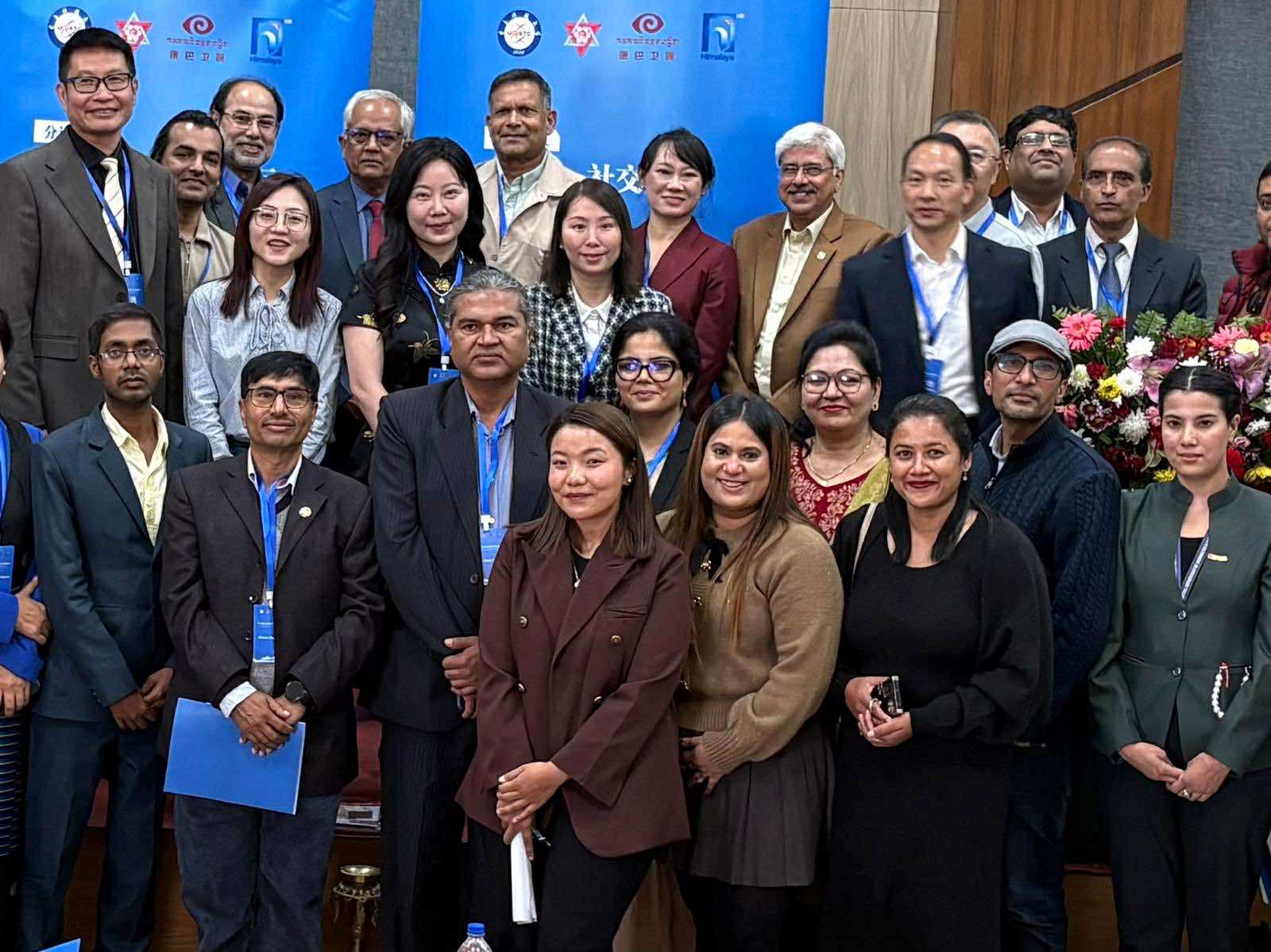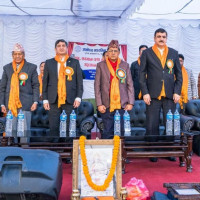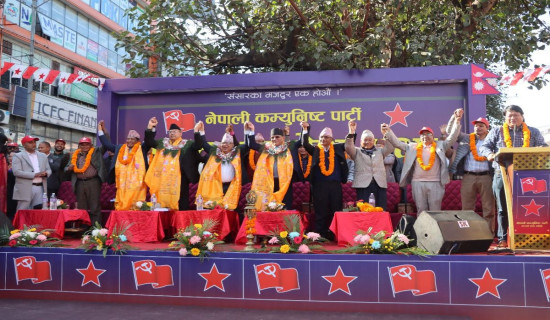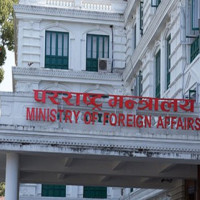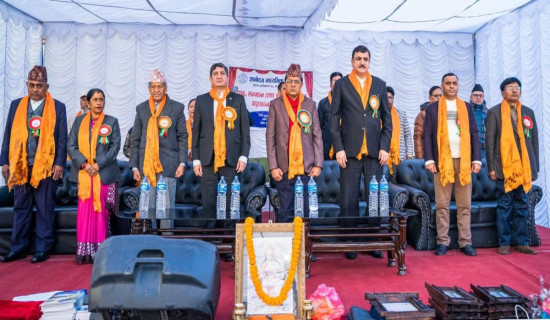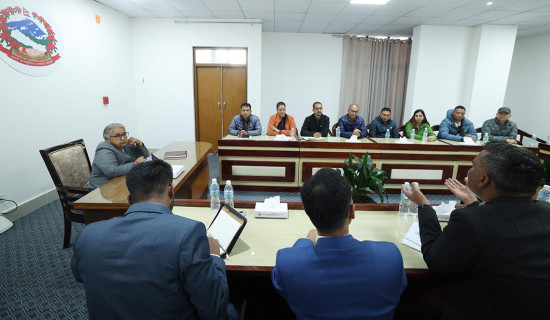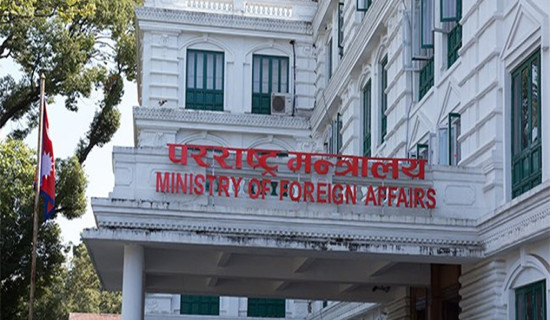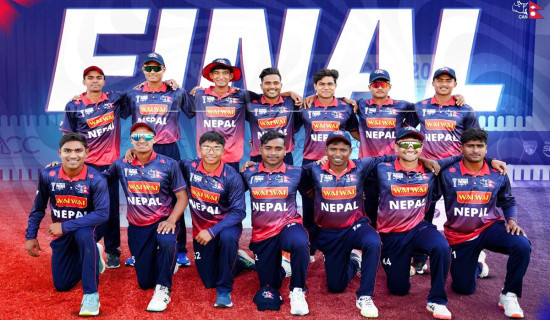- Monday, 1 December 2025
Experts on importance of trustworthy information in combating misinformation
Kathmandu, Nov.8: The 3rd Trans-Himalaya Communication and Social Development Conference concluded today at the Camera Building, CDJMC, emphasizing the need for a more comprehensive and seamless flow of information across the region.
The two-day conference was inaugurated by Prof. Deepak Aryal, PhD, who highlighted the importance of trustworthy information in combating misinformation. Concluding the event, Prof. Kedar Prasad Rijal, PhD, underscored the need for greater cooperation among Trans-Himalayan societies despite their diverse cultural contexts.
Scholars from Bangladesh, Bhutan, India, Sri Lanka, Pakistan, China, the United States, Japan, and Nepal participated in six sessions, including a main forum, where they discussed building a shared future in the digital era and strengthening cross-cultural communication. The conference also reiterated the importance of reliable information in promoting awareness of climate change mitigation and early warning systems. It further expressed concern over the ethical and responsible use of social media in the evolving communication ecosystem.
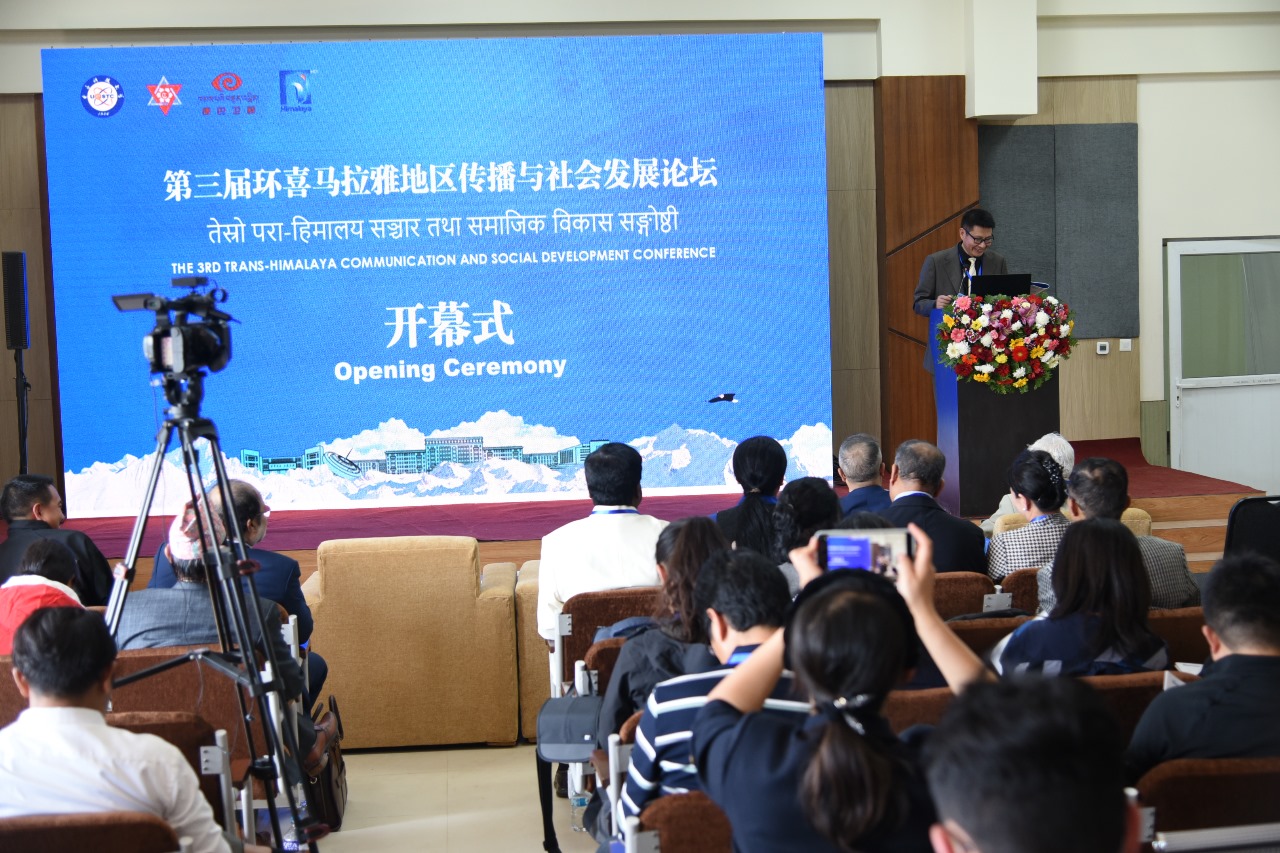
Earlier, Prof. Hu Jun, President of the University of Electronic Science and Technology of China (UESTC); Prof. Ding Huang, Dean of the School of Public Administration, UESTC; and Mr. Li Yuanjie, Deputy Chief Editor of Sichuan Radio and Television, extended their best wishes for the success of the conference.
Prof. Khadga KC, Rector of Tribhuvan University, along with Prof. Han Hong, Prof. Chen Changfeng, Prof. Manukonda Rabindranath, and Prof. Taibur Rahman, spoke on diverse issues related to global and cross-cultural communication in the region.
Speaking at the event, Dr. Kundan Aryal from the Central Department of Journalism and Mass Communication observed that Taoism, Buddhism, and Confucianism—though distinct—have long coexisted and profoundly influenced one another in Chinese and Nepali cultures over the centuries, thereby enhancing people-to-people cross-cultural communication. Kamal Dev Bhattarai, Editor of Annapurna Express, remarked that social media use in Nepal largely follows traditional patterns of new media engagement.
The conference was jointly organized by the University of Electronic Science and Technology of China and Tribhuvan University, in collaboration with Kangba TV (China) and Himalaya TV (Nepal).

